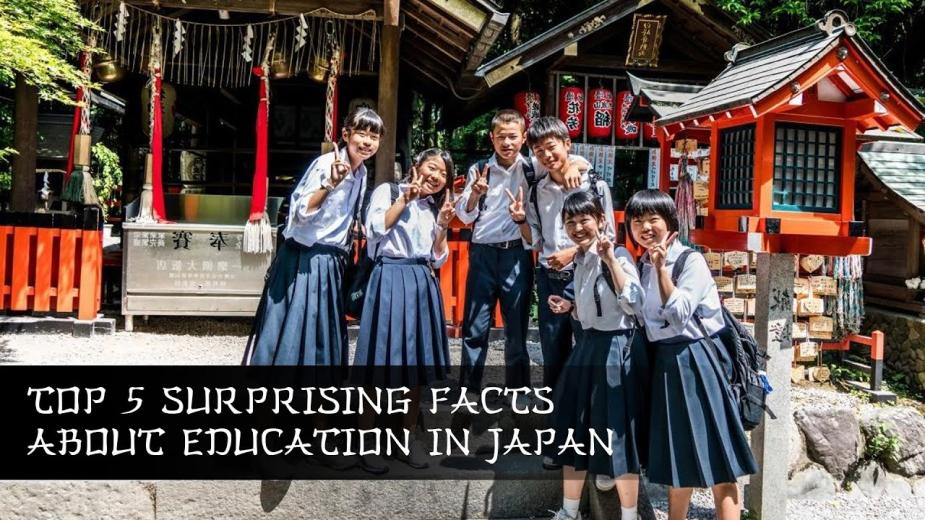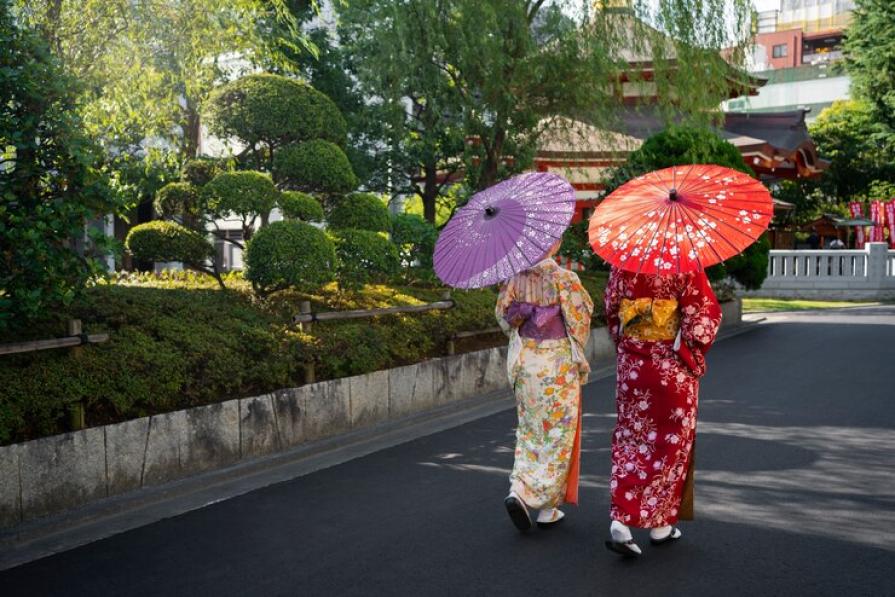Japan is a very popular country among travelers from all over the world. Many people want to visit the Land of the Rising Sun, because the local culture and aesthetics are well known to many of the books, video games and film. The latter, by the way, have formed many stereotypes about this country, which tourists still believe in. Due to common myths, many travelers have a misconception about Japan and are afraid to go there to get to know the wonderful country better.

Tiny Country
Many are sure that Japan is a very small state that can be traveled around in a couple of days. However, the size of the island country can not be called small - from north to south, Japan stretches for more than 3 thousand kilometers. 3,000 kilometers is equal to a third of the length of the Trans-Siberian Railway, the longest railway track on the planet. Due to its length, Japan is simultaneously located in several climatic zones: weather conditions in the north of the country. In the south of the country, the climate is subtropical, and the heat here is almost all year round.

Travelers say that traveling around Japan by transport is a pleasure. The local transport system is developed and convenient, and flights from one part of the country to another take no more than 5 hours. For example, the road from Okinawa to Hokkaido will take 3.5-4 hours, the way from Tokyo to Aomori will last about 5 hours. And modern bullet trains are generally a fairy tale.
Expensive entertainment and recreation
On the territory of Japan there are many museums, the entrance to which is free. Without spending a single yen, the traveler can visit the Tokyo Police Museum, the Museum of Firefighters and other exhibitions. In addition to thematic exhibits, in these places there are halls where they talk about the history of the country, its culture and traditions.
The Japanese love nature and holidays, so various festivals are constantly held in the country, where they are also allowed for free. Almost all of the country's landscape parks are also free, giving tourists the opportunity to enjoy the views and have fun without money.

The country has very expensive services of guides and guides
Japan is one of the oldest countries, so it has a long and rich history. To get full impressions of the journey to the Land of the Rising Sun, tourists go to historical sights and use the services of guides or guides. The guide will help to lay the best route to the desired point, tell you interesting information about it, which will be difficult to find yourself. Experienced guidebooks who have been living in Japan for a long time will tell you how to ride the subway and save money - the local metro is convenient, but for inexperienced tourists the system is too complicated. It seems to many that the Moscow metro is difficult to perceive, but the subway of large Japanese cities has more branches.
For their services, guides take fair money, not trying to deceive a gullible tourist for money - the local mentality does not allow the Japanese to deceive and inflate the price for work. If the traveler wants to save on the services of guides, he should pay attention to the signs - many of them are translated into English. Getting lost in the city will not work if you install a map of Japan on your phone and move around it.

An expensive country for life and tourism
The most popular stereotype about Japan concerns the cost of living. Many are sure that only wealthy people or those who have taken a loan for a trip can go on vacation to this country. However, a trip to the Land of the Rising Sun can become budgetary if the tourist correctly distributes his money and is ready to sacrifice some amenities during the trip.
- The journey begins with check-in at a hotel or inn. In Japan, there are five-star hotels, the rooms in which cost fabulous money, but there are also two-three-star hotels with clean and tidy rooms. The rooms are small, because they are designed for guests without large luggage, but in terms of comfort they are not inferior to ordinary rooms.
- In many hotels in Japan, breakfast is automatically included in the room rate, but it can be abandoned and saved. Breakfast begins at 9 am, not everyone has time to wake up by this time - it is more profitable to abandon the included breakfasts and go to eat at a time that will be convenient.
- Japanese hotels make it possible to rent accommodation cheaper if the tourist does not want maids to clean his room.

- Experienced travelers do not recommend renting a hotel in the centers of major cities, for example, in Kyoto or Tokyo. From the center it is not always convenient to get to all the interesting places and attractions, so you can settle in any part of the city - this will help save money.
- Domestic tourism is developed in Japan, and locals like to travel around their country at different periods of the year. A foreign traveler needs to be prepared that prices in this country depend on the tourist seasons. For example, when cherry blossoms begin to bloom in the country, the Japanese are going on a trip with the whole family, which is why the prices of housing and entertainment rise. If air tickets are bought for a period when there are many local tourists in Tokyo and Kyoto, you should go to smaller cities - the cost of housing there is lower, and the influx of guests will be small.
Expensive food
Many people mistakenly believe that any food in Japan is very expensive, you will have to save on it. However, the correct selection of cafes and restaurants will allow you to eat hearty, tasty and economical.

Chain establishments that sell inexpensive food are popular among travelers, because you can eat in them without fear for health. Every day, restaurants devote several hours to lunch, where you can buy delicious food cheaper. In the hotels of the country there are often mini-kitchens, where there is a microwave oven in which you can heat up purchased food from shops. Local shops at the end of the working day always make a discount on products that will spoil tomorrow. Economical travelers go to supermarkets, buy food cheaper, heat it in the stove and enjoy.
In Japan, they love seafood, but there are also restaurants with the usual European cuisine. Travelers can order meat dishes, soups and snacks, paying for them as much as they pay in their cities – in many establishments prices are average, as elsewhere. If the tourist does not eat meat, there are many restaurants for vegetarians in the country.



